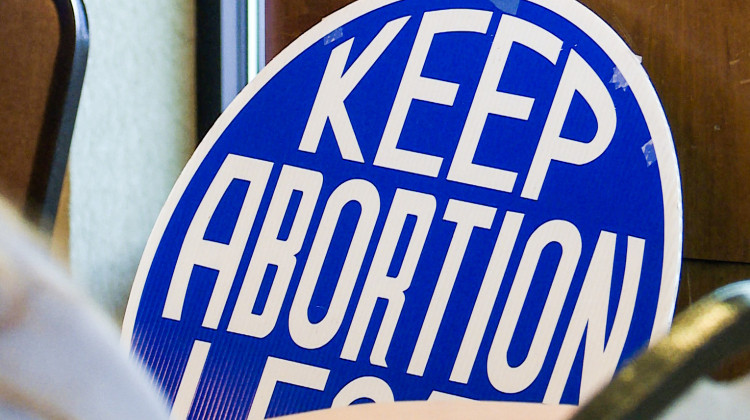INDIANAPOLIS -- When bad things happen in life, people sometimes experience what is known “situational depression” – like when a family member dies, a divorce happens or a family member gets ill. If not held in check, that depression can deepen into something much more serious.
For nearly 24 years, Indianapolis watched Rick Dawson report the news on TV. But suddenly in 2010 – his employer let him go. Shannon Cagle Dawson is Rick Dawson's widow and a part time producer at WFYI.
“He was a very genuine man but he was not in the business of sharing his personal life with everybody -- probably in great part because he was a public figure. He did not want people to know about other things we were struggling about,” she said.
Cagle Dawson says her husband began battling anxiety after a family member developed a chronic illness. And when he lost his longtime job, he felt he’d also lost his purpose. “You know, when you talk to people who are struggling to find employment, especially people over the age of 40 or 50 – that’s really a very looming issue for them.”
She says he sought counseling briefly but felt guilty for spending the money when the family wasn’t even able to meet the bills.
“It was agonizing for him," she said. "He felt like a failure. He felt like a failure on the family level. He felt like a failure on the financial level. And he felt like a failure on the productivity level – which was very, very close to his heart. He loved being a reporter. He really loved it. And not being able to do that absolutely crushed him.”
Dawson eventually found work, after two years of searching, but it didn’t last long. That loss – and the impending foreclosure of their home – just added to his anxiety and depression. In September of 2013, three years after losing his TV job, Rick Dawson took his life.
"For months after Rick died, I was torn with the memories of everything we had planned to do. We were together for close to 25 years and we had wonderful experiences and had plans for other wonderful experiences – primarily involving our children – but other things we wanted to do too."
Cagle Dawson says some people tell her suicide is selfish, but she resists that idea, "I don’t feel that people who suffer from extreme depression and then take their own lives are being selfish. I think they’re in agony. My husband was a magnificent writer. He was an excellent reporter. He was a great community member, and other people knew that – he couldn’t see it in himself anymore and that’s what depression did to him.”
Cagle Dawson says Rick didn’t have to die. And that’s why she’s speaking out about depression, in hopes her family’s story can help to lift the stigma of mental illness.
If you need to talk to someone now about depression and suicide prevention you can text "HELPNOW" to 20121 or call 800-273-8255.
This Saturday at Butler University, the Indiana chapter of the American Foundation for Suicide Prevention is holding an event for Survivors Of Suicide Loss from 10 a.m. until 3 p.m.
 DONATE
DONATE











 Support WFYI. We can't do it without you.
Support WFYI. We can't do it without you.